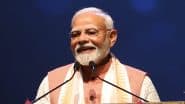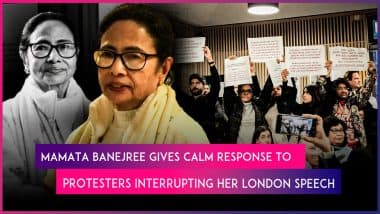New Delhi, Jan 8 (PTI) With half of the population projected to live in cities by 2047, sustainable urban environments need to be created using modern tools and traditional wisdom, Union Housing and Urban Affairs Minister Manohar Lal said on Wednesday.
The government aims to empower its staff with relevant skills and knowledge for better city planning and management, the minister said.
Also Read | January 8 Birthdays and Birth Anniversaries: Know About Famous People and Celebrities Born on January 8.
Speaking at the "Capacity for Change: Forging Sustainable Futures" conference here, he underscored the importance of citizen-centric urban governance, as per a HUA ministry statement.
According to the ministry, the conference served as a platform for thought leaders, urban officials, and experts to discuss strategies and best practices for building institutional capacity in urban governance.
It explored how data and technology can be leveraged to make capacity-building initiatives a catalyst for strengthening urban governance. The conference was organised by the National Institute of Urban Affairs.
"This initiative aims to reimagine historic Indian cities, address urban expansion and integrate technology and AI to shape future cities.
"We should draw inspiration from the traditional wisdom of our historic cities and combine it with modern technological tools to create sustainable urban environments, as 50 per cent of the population is projected to live in cities by 2047," the statement quoted the minister as saying at the event.
Union Minister of State for Housing and Urban Affairs Tokhan Sahu said that the central government's mission is not only to make cities engines of growth but also examples of equity, equality and sustainability.
"Innovation is key, but it must be citizen-centric. Involving citizens in governance ensures that cities become inclusive, especially for the marginalised communities, Sahu added.
(This is an unedited and auto-generated story from Syndicated News feed, LatestLY Staff may not have modified or edited the content body)













 Quickly
Quickly

















